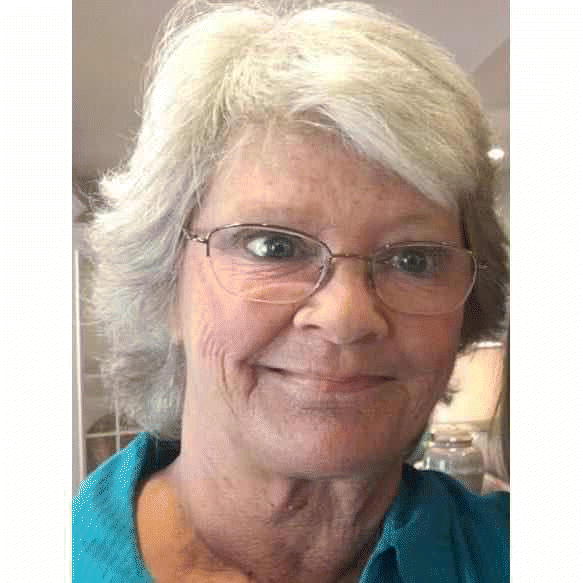KOUTOULAS: What we stand to lose
Published 11:41 am Friday, June 5, 2020

- Pete Koutoulas
|
Getting your Trinity Audio player ready...
|
I was listening to the excellent podcast “The Daily” from the New York Times earlier this week. The episode was about the unrest around the country resulting from the killing of George Floyd.
In case you’ve been in seclusion for the 10 days or so, just Google his name.
The podcast host was capturing voices of black people at some of the many protests occurring across the country. One woman explaining her involvement said something like the following. (I’m paraphrasing from memory.)
“The problem is the system. When enough people get out here and speak out — black people, brown people, white people — when enough of them are out here that they outnumber the people in power, then things will begin to change.”
Another person had this to say about the violence at the protests. (Again paraphrasing.)
“There are two views about all this. The first view is that people will not notice if all the protests are peaceful. They’ll get a few seconds on the news, and that’s it. It’s only when there’s violence and the constant threat of violence that the news cycle begins to focus on what’s going on. And people become aware.
“But the other view is violence does little to advance our cause. It’s been going on for a long time, and nothing seems to change. We only seem to be making the situation worse — we only seem to be strengthening negative stereotypes. I don’t know what the answer is.”
I understand this person’s point. I, too, have conflicted feelings about the violence. There are so many unsettling and disturbing images to attempt to process.
This milieu disturbs and frightens me. I’m a law-and-order kind of guy. I’m a white, middle class, 50-something man with a vested interest in keeping things stable. I don’t want to blow up the system. I don’t want to see civil unrest.
In other words, the status quo is working for me.
On the other hand, I don’t have to live with the everyday indignities people of color still suffer.
I don’t know how it feels to automatically be a suspect when a crime happens to occur near me.
I’ve never felt the humiliation of having someone call the police on me because… well, just because.
I, or people who look like me, can walk about in public dressed in camouflage and armed to the teeth, with no fear of being questioned by police. Contrast that with the experience of one of my African-American friends, who was not allowed to play with toy guns as a child for fear of him winding up dead.
In other words, I enjoy a position of privilege. White privilege.
Lest anyone think I’m cop-bashing, I assure you I am not. I’m a graduate of the Winchester Citizen’s Police Academy. My brother-in-law is a police officer. I have other extended family, neighbors and friends who are serving or have served on police forces. I think I understand some of the incredible stresses that accompany that job, of the fears and anxieties that police officers — and their families — experience every single day.
All of the police officers I know personally are good, decent people who try to treat everyone with respect.
This is not about individual police officers or the police as a group. The problem, as the woman in the podcast said, is the system. More specifically, it’s an establishment that has its roots in the antebellum period of American history when black people were enslaved. It continued after the war, embodied in Jim Crow laws, redlining and segregation.
It’s called systemic racism.
This is manifested not only in policing but in equal access to employment, financial services, education, health services and much more.
Black people have tried to speak up. Some were killed for it. Others were ridiculed and harassed, denied employment or generally bullied into submission.
One of my black friends asked me what it takes to get white society to take their concerns seriously. He pointed out that people who try to protest peacefully often suffer grave consequences. Think Colin Kaepernick.
Is it any wonder that desperate people turn to violence when all else fails? Two wars were fought on American soil for that very reason, and the people who started those wars are practically deified by our culture.
So we do have the capacity to appreciate that desperation often leads to violence.
I do not condone violence when it leads to the destruction of property and the harming of human beings. Yet I understand the impulse.
I am more outraged by the cold-blooded murder of George Floyd than I am by the violence it spurred.
People of color will never change the status quo by themselves. As the woman from the podcast said, they are fighting against an ingrained system. They need us — people like me — who are willing to join hands with our black and brown brothers and sisters and join the struggle.
Not only to join it but to make the struggle our own as well.
It’s way past time for us to get out of our comfort zones. Because despite appearances, we do have skin in the game. We do have something to lose.
We stand to lose the very things we hold dear as Americans. We are in danger of losing decades of progress in ensuring that the blessings of liberty are eventually extended to everyone.
We stand to lose our national identity.
We stand to lose our souls.
Pete Koutoulas is an IT professional working in Lexington. He and his wife have resided in Winchester since 2015. Pete can be reached at pete@koutoulas.me or follow him on Facebook at fb.me/PeteTheSun.





